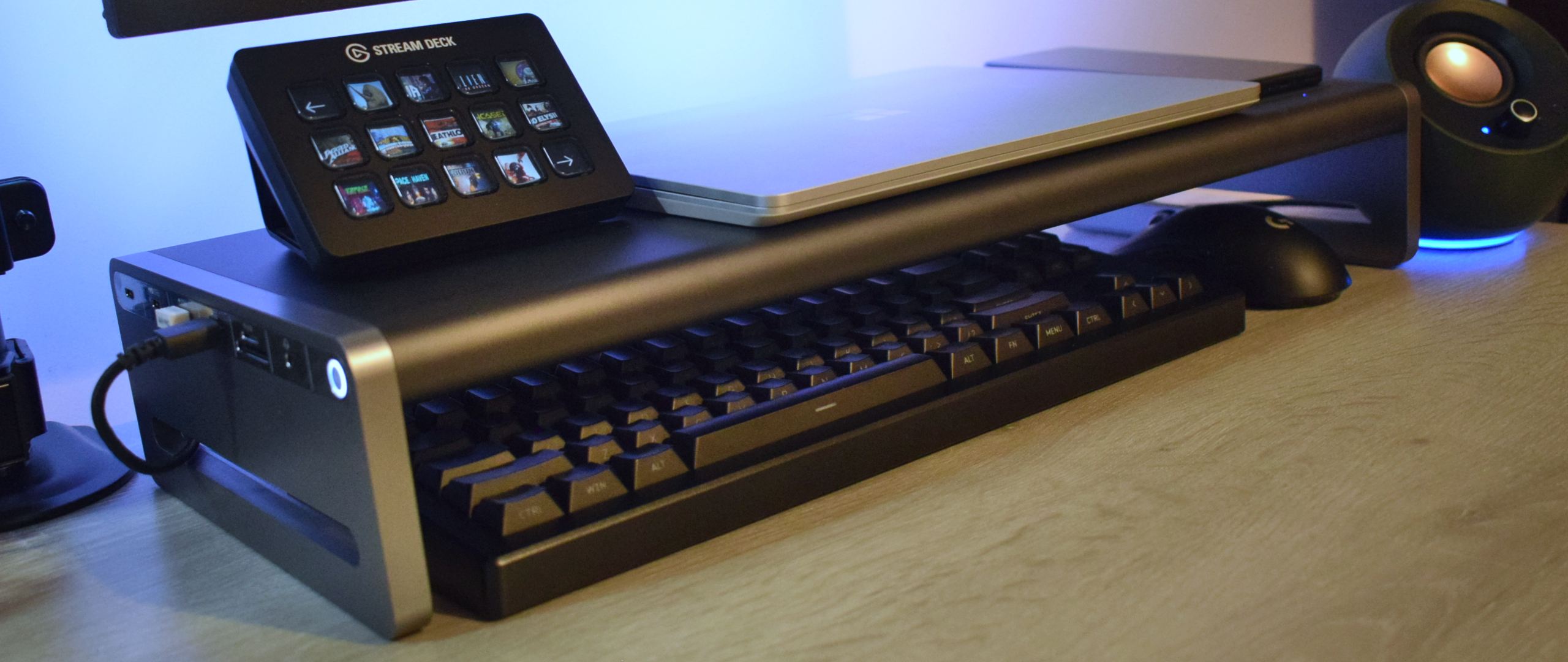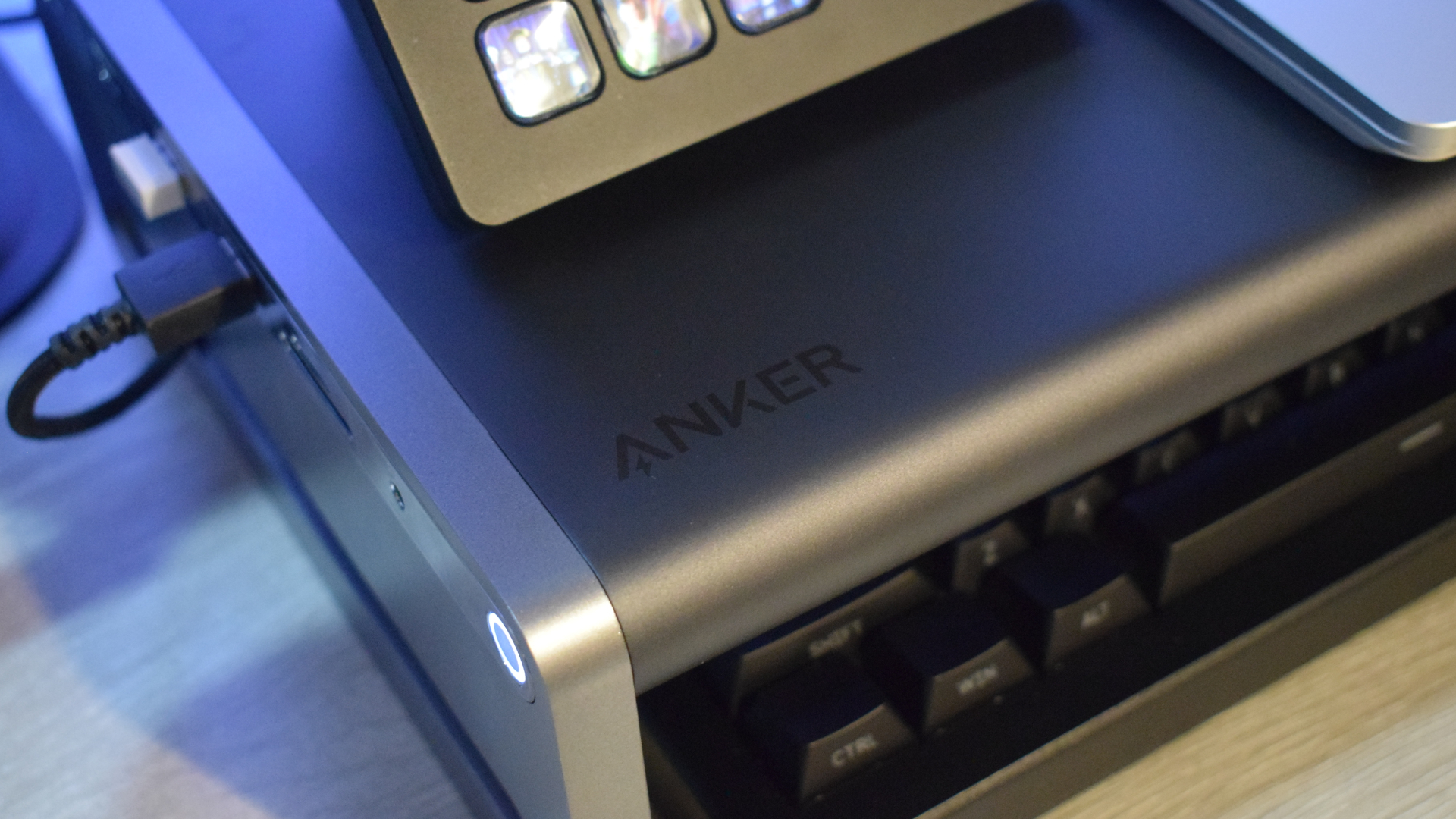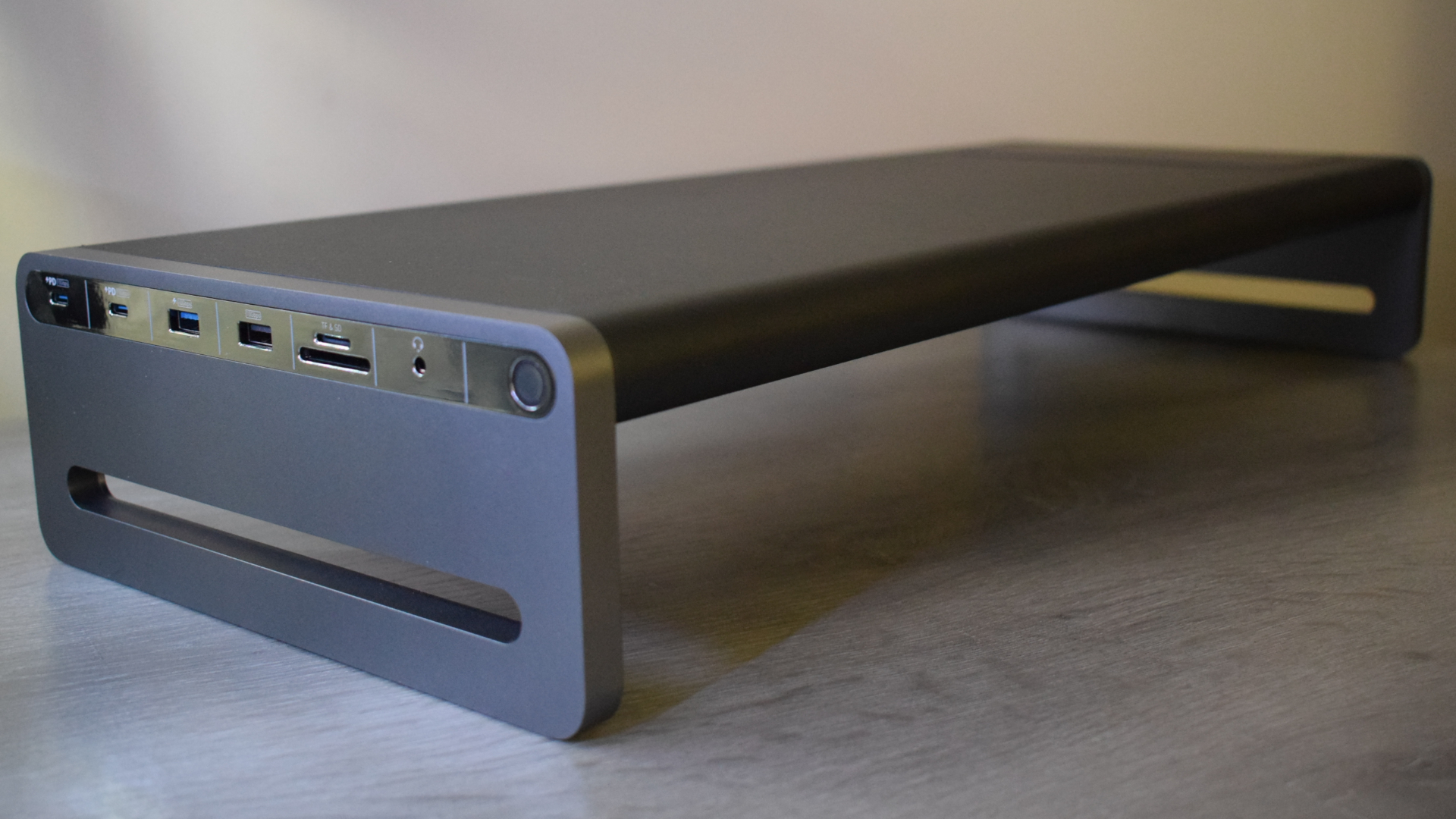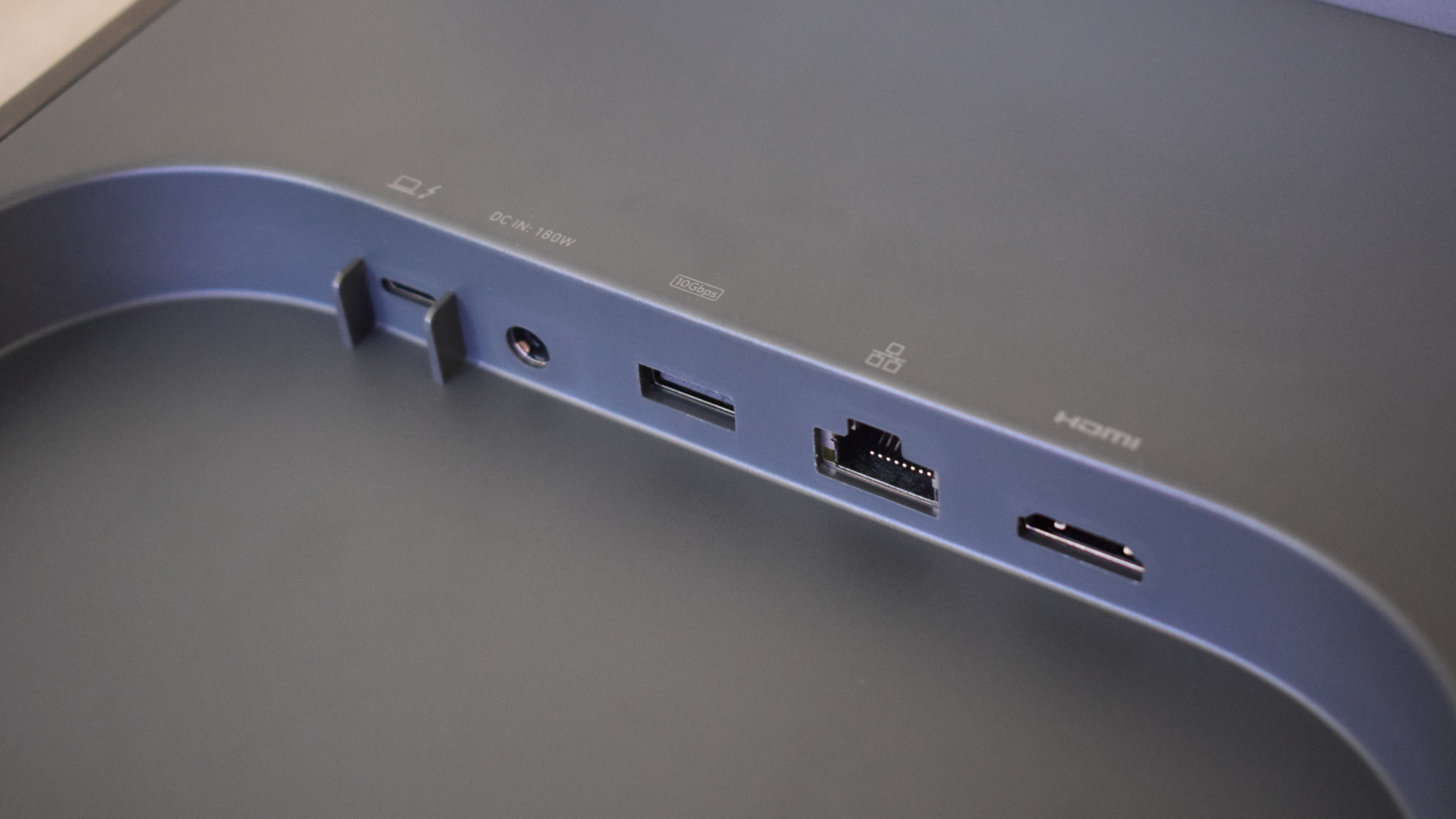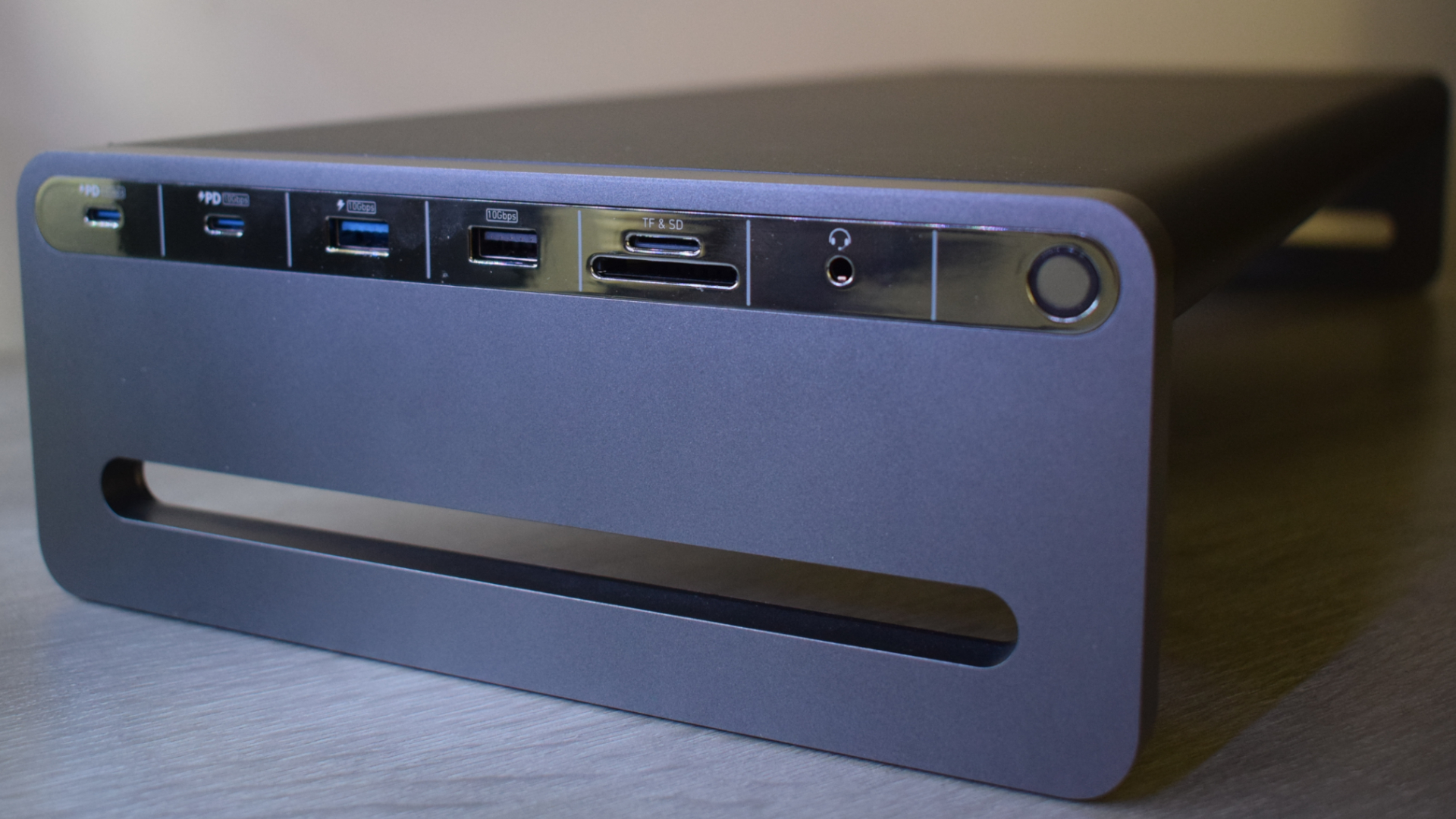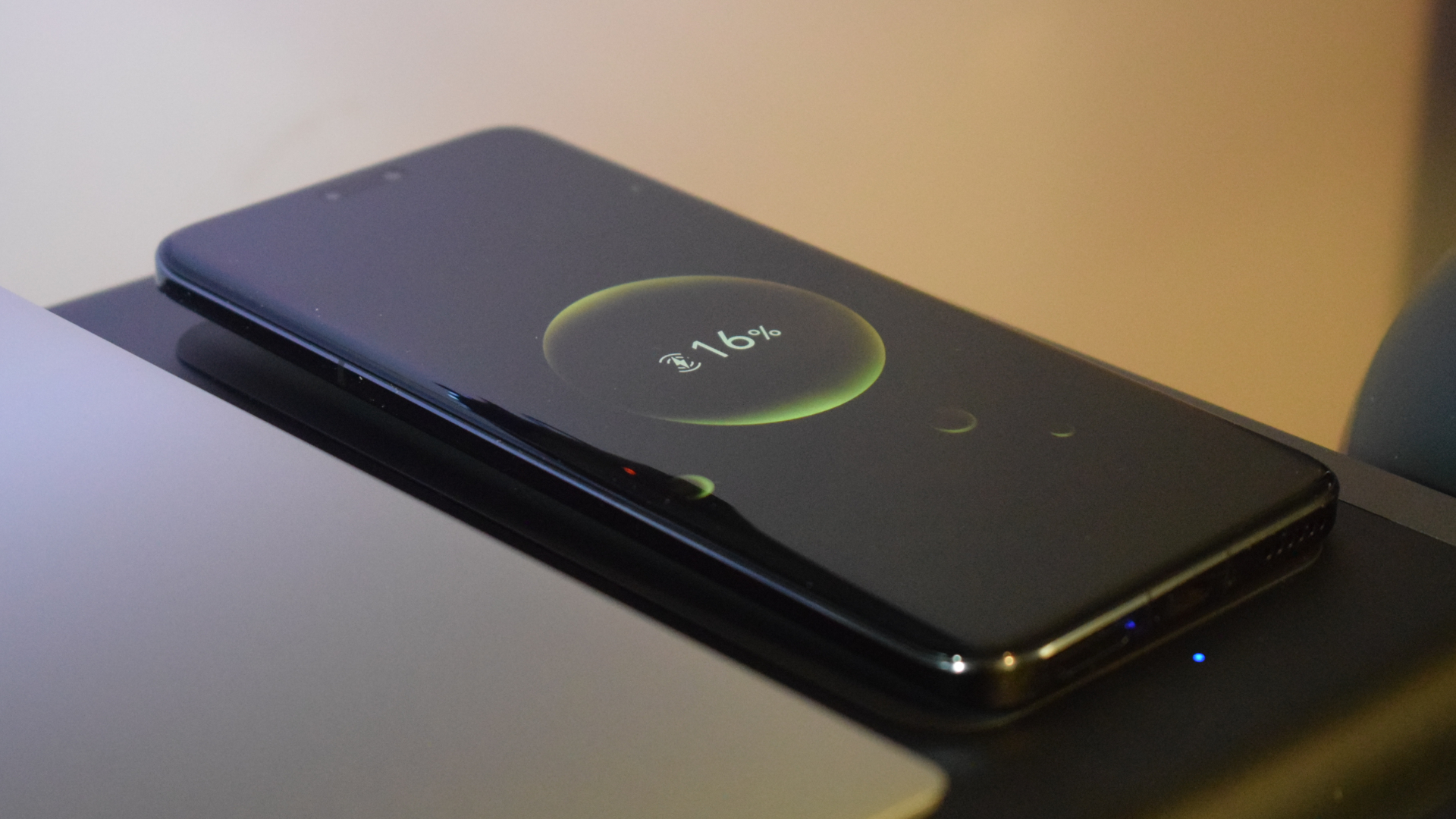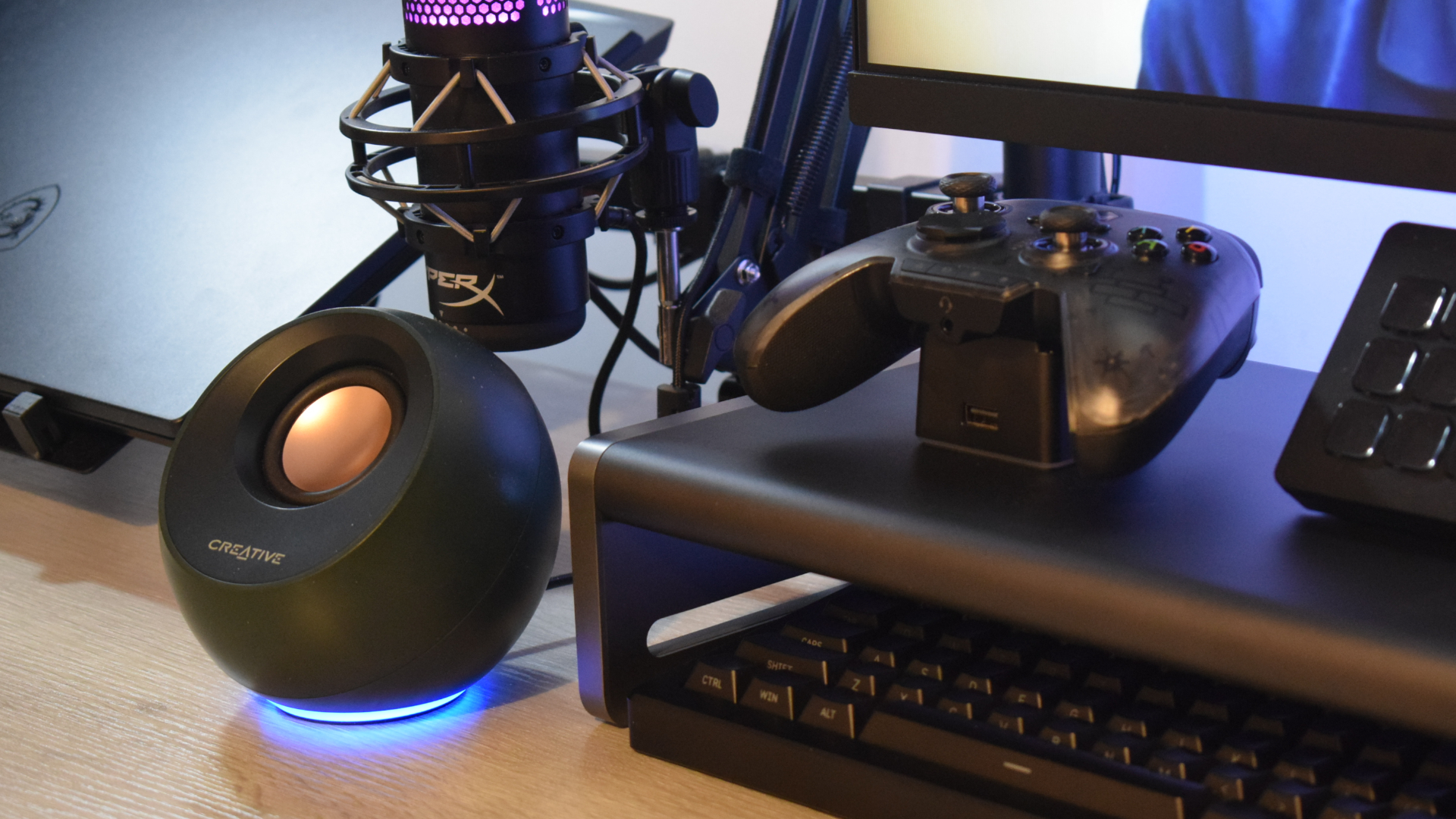Laptop Mag Verdict
Anker’s hybrid docking station/monitor stand is cable management heaven, an ergonomic blessing for the body, and the ultimate port expansion solution for smaller setups or cramped desks.
Pros
- +
Ergonomic monitor stand
- +
Speedy USB ports
- +
Incredible cable management
- +
Sleek, modern design
- +
Built-in wireless charging
Cons
- -
More ports would be nice
- -
Only one video out
Why you can trust Laptop Mag
Thunderbolt docks might be the belle of the ball to many, with their super-fast data rates and fancy lightning bolt seal being seen as the apex of port expansion options. But the truth is, most folk only need a fraction of the specs these devices deliver — with the average user’s computing demands lining up much more closely with what your standard USB-C dock has to offer.
The Anker 675 USB-C Docking Station, with its 12-in-1 port expansion, fantastic cable management, and excellent charging capabilities is much more suited to the needs of the average laptop user. Better still, this versatile docking station doubles as a monitor stand, desk tidy, and even a wireless charging point for your smartphone.
This product is one of the best docking stations around if you’re looking to make the most of a smaller space, and a brilliant accessory for cable management and charging several devices at once. Let’s take a closer look at why.
Anker 675 USB-C Docking Station price and availability
The Anker 675 USB-C Docking Station is available for $199.99 from Amazon or just $169.99 from the Anker website (with a $30 off coupon available at the time of writing).
Docking stations and affordability don’t often go hand in hand into the sunset, and while this price might seem high at first, I can assure you that Anker’s dock is rather fairly priced for the category.
Similarly priced USB-C docking stations like the $199 Baseus UnionJoy Pro may offer more ports and more options for supporting external displays but lack the Anker 675’s consistent port speeds, multifunctional design, and wireless charging potential.
Whether you want more ports that run slower, or fewer ports that run faster can depend entirely on your setup. However, as a 12-in-1 hardware expansion, Anker’s dock is by no means a slouch when it comes to providing ports and I’d unquestionably state that it has much more to offer than other USB-C docks in this price bracket.
Sign up to receive The Snapshot, a free special dispatch from Laptop Mag, in your inbox.
Anker 675 USB-C Docking Station design
If you’ve seen one Thunderbolt dock, you’ve likely seen them all. However, with USB-C models, variety is the spice of life. Logitech’s Logi Dock combines a traditional dock with a micro soundbar; Satechi’s Dual Dock Stand is part dock, part SSD enclosure, and part ergonomic laptop stand; and ErgoAV’s Motion Desk Mount cleverly incorporates a selection of ports into the base of its mighty dual arm monitor stand.
Anker’s offering follows suit, with an aircraft-grade aluminum alloy shelf supported by two sturdy hard plastic legs to cleverly disguise it as an 8.6 x 21.2 x 3.5-inch monitor stand. Inconspicuously taking its place on your desk with an under-mount cable caddy ready to keep your wires in check.
If you weren’t paying attention, the fact that Anker’s device is a docking station could pass you by entirely, with the only major visual clue being a subtle string of ports and a circular power indicator adorning a chromed plate on the left leg of the stand. However, you would far more easily notice the smartphone-shaped wireless charging panel on the right side of the deck.
The black aluminum shelf pairs nicely with the silver legs, providing a fantastic, modern-looking base station fit for most monitors, though it will especially gleam when housing those with a black or silver stand.
Some larger VESA monitor stands might find the 8.6-inch depth of this platform a little shallow, but it's still fairly spacious. While there’s no central supporting column, the aircraft-grade aluminum is solid as a rock under load, and showed zero indication of stress or bend throughout my two-week use of it.
As for accommodating displays, Anker’s dock is ideal for monitors up to 24 inches. However, thanks to a 22-pound weight limit, this sturdy stand should effortlessly house displays that go above and beyond this — even making for a great fit for an all-in-one PC.
Anker 675 USB-C Docking Station ports and connectivity
The Anker 675 is a docking station compatible with any laptop with an available USB Type-C or Thunderbolt connection. If you’re using a USB-C laptop and want to hook this dock up to an external monitor, then you’ll also need to ensure that the port supports DisplayPort alt mode to accommodate a second display, however, Thunderbolt ports support video throughput by default.
Just because you can connect the Anker 675 to a Thunderbolt port, doesn’t mean you can access the port’s full 40Gbps speeds. While Thunderbolt is backward compatible with previous versions and USB Type-C accessories and peripherals, the Anker 675 is not a Thunderbolt device and is limited to a 10Gbps connection to the host machine.
That host port is located in a recess on the underside of the dock, tucked away in a recess for easier cable management. That recess contains the following ports:
- (Host) USB 3.2 Gen 2 Type-C port (up to 100W PD, 10Gbps)
- (Power) DC-IN (180W)
- 1 x USB 3.1 Gen 2 Type-A port (10Gbps, 4.5W)
- 1 x HDMI 2.0 port (up to 4K at 60Hz)
- 1 x Ethernet port (RJ45, 1Gbps)
The Anker 675’s remaining I/O are found across the left-hand leg and include:
- 2 x USB 3.2 Gen 2 Type-C ports (10Gbps, up to 45W PD)
- 1 x USB 3.1 Gen 2 Type-A port (10Gbps, 4.5W)
- 1 x USB 3.2 Gen 2 Type-A port (10Gbps, 7.5W, BC 1.2)
- 1 x SD/microSD card reader (104MBps, UHS-I)
Finally, the right side of the shelf features a Qi-certified wireless charging panel that delivers 10W of charge for Samsung Galaxy devices, 7.5W of charge for iPhone, and 5W for other smartphones or wireless earbuds.
Does the Anker 675 feature enough ports to accommodate your power user? Not really, but as previously mentioned, this is an ideal selection of ports for smaller setups and I was able to find space for a wireless keyboard, wireless mouse, USB microphone, and a set of computer speakers — still leaving me a spare USB Type-C port with a solid amount of charge output to keep my iPad or earbuds topped up, and while charging my smartphone using the wireless charging pad too.
Anker’s dock may not be able to count port number as one of its greatest strengths, but this is a case of appreciating the size of the fight in the dog and not the size of the dog in the fight. There’s still a decent level of port variety and plenty of charge spread among them.
Anker 675 USB-C Docking Station performance
There’s little to complain about with Anker’s dock over performance and usage. For setup, I put it on my desk, connected the power, hooked up the host cable to my laptop, placed my monitor on the shelf, and connected the HDMI cable and I was instantly up and running. The 4K image delivered to my monitor was just as crisp as ever, as smooth and responsive as if connected directly to my laptop, and without a hint of lag or artifacts. It just worked, right out of the gate.
That extra bump in height is great for neck comfort, with a 3.5-inch lift making far more of a difference than I assumed it would. However, it raised my monitor toward my natural eye level and improved my overall posture. That leads to less discomfort while shackled to your desk during longer work days, and a generally more pleasant environment on your bones.
My monitor’s VESA stand was a little bit on the larger side, and the overhang it caused didn’t look all that great in images. But I’ve recently begun to use a desk-mounted monitor arm, anyway. So I could house my most-used accessories on top of the dock instead, with my monitor majestically floating above like it was part of some sort of David Copperfield illusion.
Free from my monitor, the Anker 675’s shelf made for an ideal place to store my wireless keyboard, or accessories like a Stream Deck depending on my current setup. Furthermore, the cavity below the shelf was a great space to stash my laptop or game controllers, and I could also sneak a GaN charger under there when I needed to use a second laptop for work.
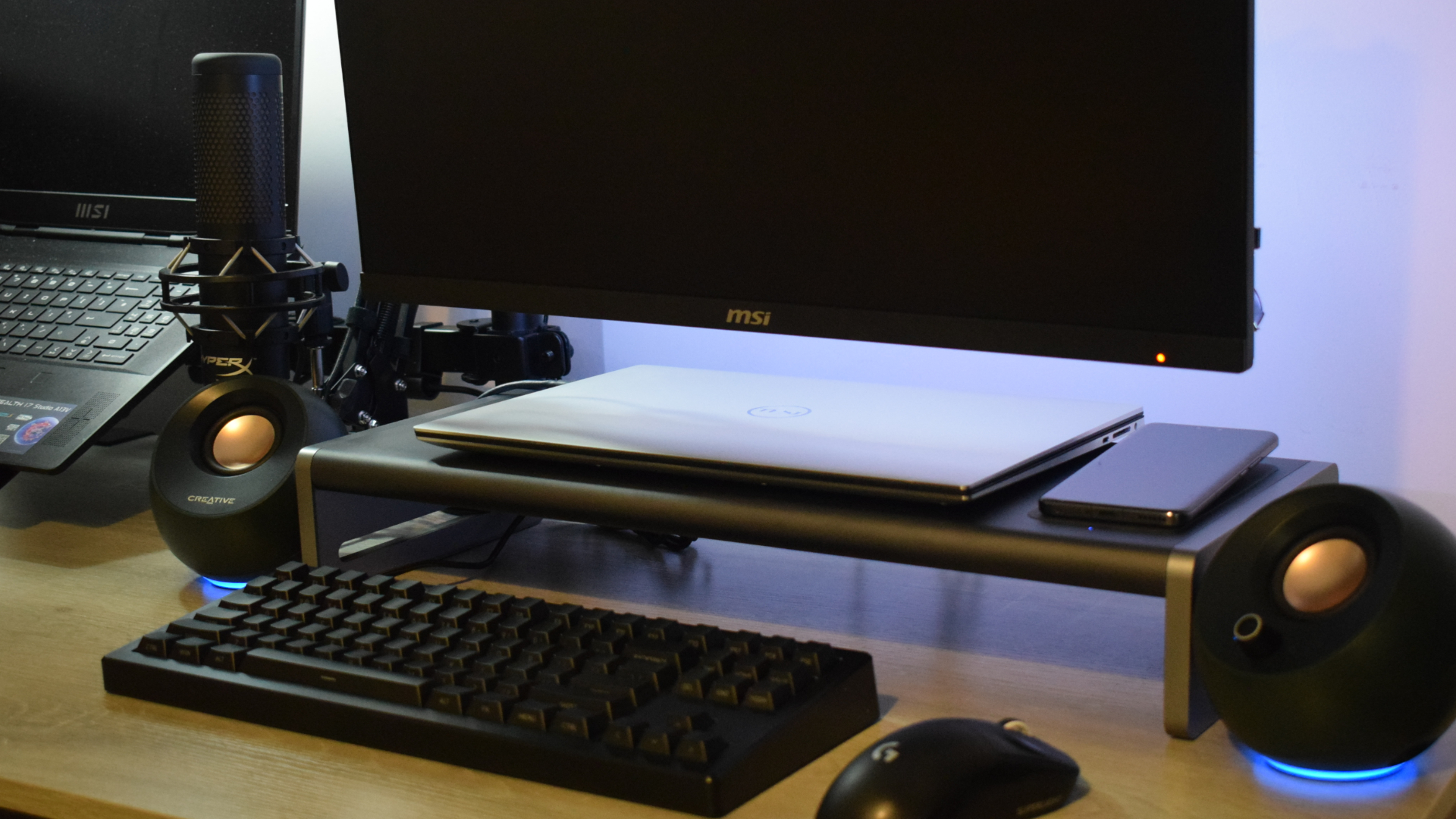
The 100W of Power Delivery offered by Anker’s dock was ideal for my productivity laptops (which typically require 45W or 90W chargers), keeping them topped up throughout the day without any hassle. Similarly working without issue were the dock’s numerous ports, all capable of individually delivering on the expected speeds compared to their advertised ratings. However, while these ports are plenty fast, they bottleneck through a single USB Type-C port is capped at 10Gbps.
A fuller setup that requires a lot of data traffic could suffer when it comes to this bottleneck, especially while also managing an external display. However, if you’re more likely to use those legacy ports for peripherals, then this won't be an issue you run into often.
Bottom line
The Anker 675 isn’t just a great docking station, it’s also a genuinely useful monitor stand and desk tidy — not to mention a solid all-around charging solution. It’s ideal for making the most use of smaller spaces, but it also won’t look out of place taking center stage on a larger desk.
It is, however, a single-monitor solution, so if you’re accustomed to using an array of displays, then a more conventional offering like the dual-screen supporting UGreen 9-in-1 USB-C Docking Station or the Plugable Thunderbolt 4 & USB4 Quad Display Docking Station for maximum screen expansion might be a better fit.
If you like a tight setup, need more ports, and are looking for a solid charging solution, multipurpose USB Type-C docking stations have much to offer. But few do it as well as the Anker 675. It’s out-standing.
More from Laptop Mag
- Best laptop docking stations in 2024
- 4 things you need to know before buying a docking station
- Why are docking stations so damn expensive?

Rael Hornby, potentially influenced by far too many LucasArts titles at an early age, once thought he’d grow up to be a mighty pirate. However, after several interventions with close friends and family members, you’re now much more likely to see his name attached to the bylines of tech articles. While not maintaining a double life as an aspiring writer by day and indie game dev by night, you’ll find him sat in a corner somewhere muttering to himself about microtransactions or hunting down promising indie games on Twitter.
